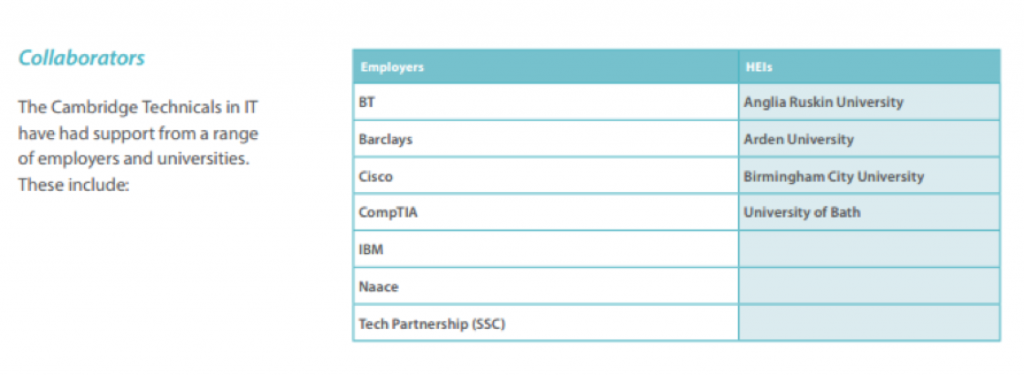Information and Communications Technology
Head of ICT: Ms P Erol
ICT AND Computing
The national curriculum for computing aims to ensure that all pupils:
- can understand and apply the fundamental principles and concepts of computer science, including abstraction, logic, algorithms and data representation
- can analyse problems in computational terms, and have repeated practical experience of writing computer programs in order to solve such problems
- can evaluate and apply information technology, including new or unfamiliar technologies, analytically to solve problems
- are responsible, competent, confident and creative users of information and communication technology
KS3
A high-quality computing education equips pupils to use computational thinking and creativity to understand and change the world. Computing has deep links with mathematics, science and design and technology, and provides insights into both natural and artificial systems. The core of computing is computer science, in which pupils are taught the principles of information and computation, how digital systems work and how to put this knowledge to use through programming. Building on this knowledge and understanding, pupils are equipped to use information technology to create programs, systems and a range of content. Computing also ensures that pupils become digitally literate – able to use, and express themselves and develop their ideas through, information and communication technology – at a level suitable for the future workplace and as active participants in a digital world.
Students will be taught:
Computer Science Modules and Progression
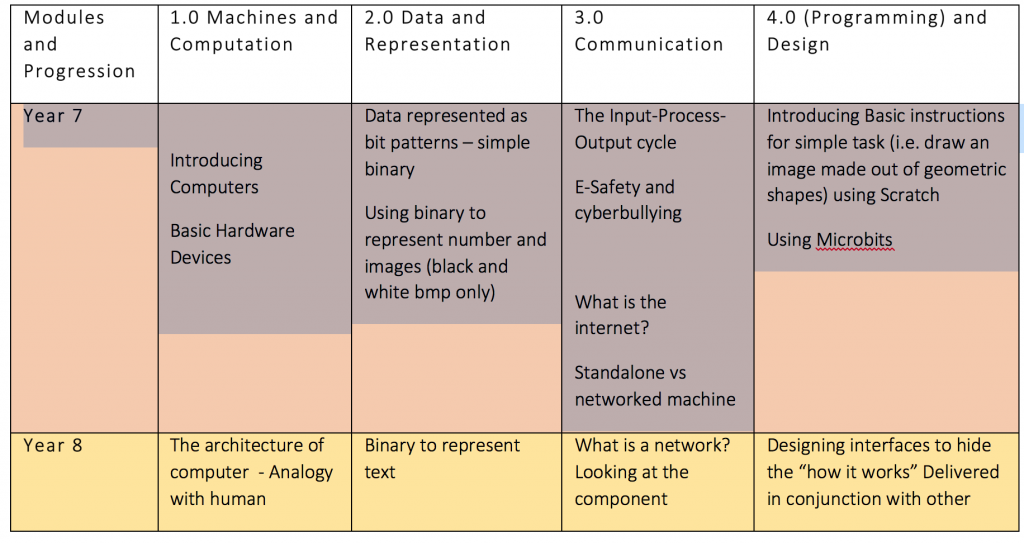
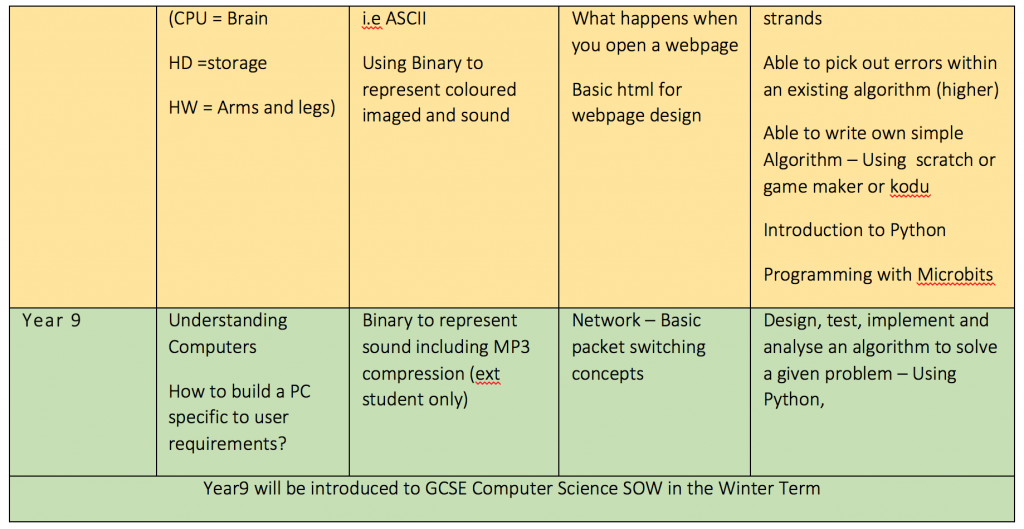
KS4- Computing
Exam board & Specification
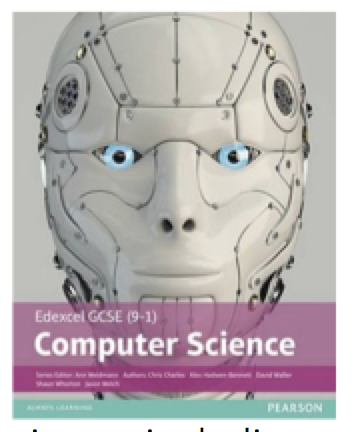 Edexcel: Specification No 1CP1-
Edexcel: Specification No 1CP1-
Computer Science GCSE 9-1
Summary of Course Content:
The aims and objectives of this qualification are to enable students to:
- understand and apply the fundamental principles and concepts of computer science, including abstraction, decomposition, logic, algorithms, and data representation
- analyse problems in computational terms through practical experience of solving such problems, including designing, writing and debugging programs
- think creatively, innovatively, analytically, logically and critically
- understand the components that make up digital systems, and how they communicate with one another and with other systems
- understand the impacts of digital technology to the individual and to wider society
- apply mathematical skills relevant to computer science.
Exam/Assessment Details
The Pearson Edexcel Level 1/Level 2 GCSE (9–1) in Computer Science consists of two externally-examined papers and a non-examined assessment component. Students must complete the non-examined component in March and all external assessments in May/June in any single year.
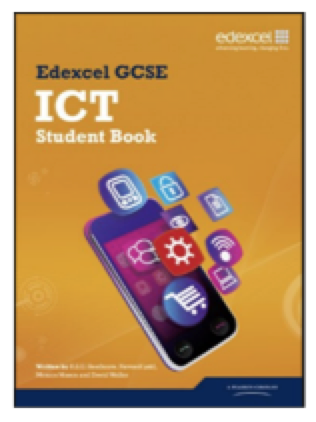 KS4-ICT
KS4-ICT
Exam board & Specification
Edexcel: Specification No 2IT01
Exam/Assessment Details
Unit1-90min written exam to be taken in June2017- 40% of final grade
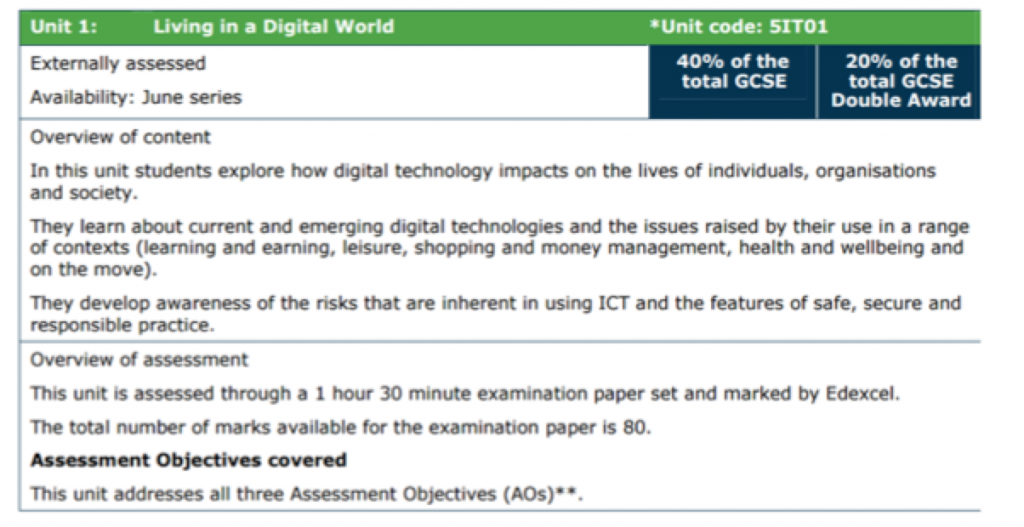
Unit2-40hr Controlled assessment to be completed in class before May 2017- 60% of final grade– Students to complete their controlled assessment project on ‘Organising a Prom’
The company will work with schools to help them organise proms.
It will provide schools with digital products.
These will include:
- a sample list of formalwear suppliers
- sample tickets that could be used for a prom
- a sample digital poster to be used in the school to advertise the prom.
The company will use a model that will allow a school to see how the choices it makes in the organisation of a prom impact on the ticket price that students will pay.
The company will need a page for its website to show schools the services that it provides.
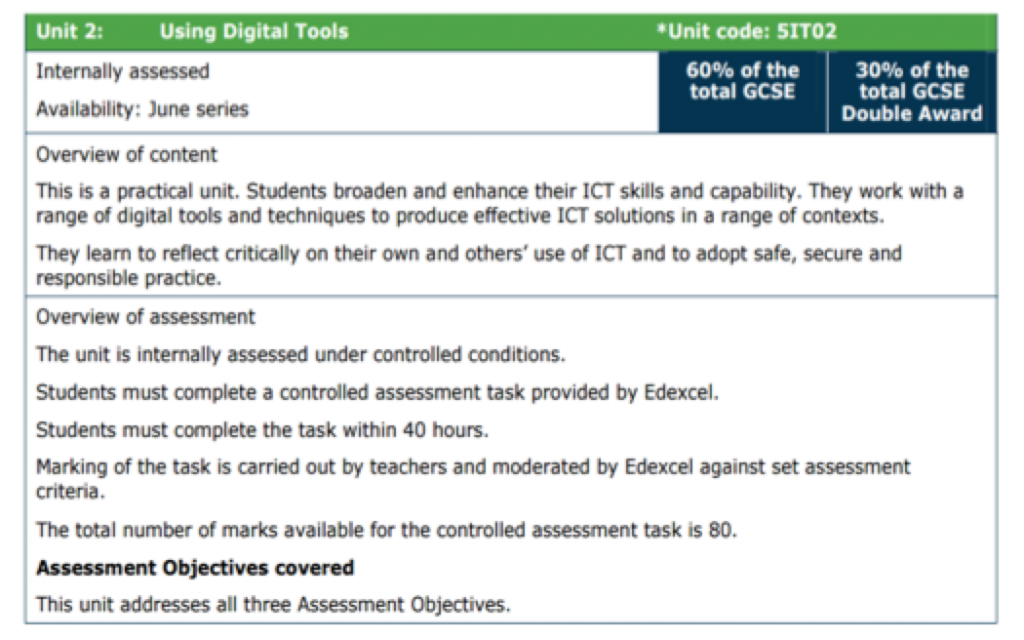
Core texts/websites/support materials advised for independent study
Core Texts
Edexcel GCSE ICT Student book– written by R.S.U Heathcote, Naveed Latif, Monica Mason and David Waller
Revise Edexcel GCSE ICT- Revision Guide– Authors: Nicola Hughes and David Waller
Revise Edexcel GCSE ICT- Revision Workbook– Authors: Nicola Hughes and David Waller
Support Materials
www.bbc.co.uk/schools/gcsebitesize/ict/mocks
Past papers can be accessed via the Edexcel website- Edexcel GCSE ICT/ Course Materials/ Exam Materials
KS5
 This qualification is not just about being able to use computers. Employers have told us that they need people who are able to help them develop their systems or the systems for their customers, use IT as a tool to analyse data and develop applications. Therefore, this qualification is designed to give you a range of specialist knowledge and transferable skills in the field context of applied IT, providing you with the opportunity to enter an apprenticeship, move directly into employment, or progress to a related Higher Education course. You could progress onto a Level 4 apprenticeship such as Network Engineer or Software Developer or into employment in the IT sector in areas such as technical support, digital technologies, application development or data analysis. There are no formal entry requirements or requirement for any specific prior learning, although you will need a good level of literacy and numeracy skills.
This qualification is not just about being able to use computers. Employers have told us that they need people who are able to help them develop their systems or the systems for their customers, use IT as a tool to analyse data and develop applications. Therefore, this qualification is designed to give you a range of specialist knowledge and transferable skills in the field context of applied IT, providing you with the opportunity to enter an apprenticeship, move directly into employment, or progress to a related Higher Education course. You could progress onto a Level 4 apprenticeship such as Network Engineer or Software Developer or into employment in the IT sector in areas such as technical support, digital technologies, application development or data analysis. There are no formal entry requirements or requirement for any specific prior learning, although you will need a good level of literacy and numeracy skills.
You could include this qualification into a wider programme of study incorporating a variety of Level 3 qualifications such as the vocational Cambridge Technicals in Business, Digital Media and/or A level Computing, English and Mathematics.
What does this qualification cover?
You will choose to study units from one of four specialist pathways depending on the career you wish to pursue. The four pathways are:
- IT Infrastructure Technician
- Emerging Digital Technology Practitioner
- Application Developer
- Data Analyst
You will take five units (three mandatory and two optional units). There are two mandatory units that are in all pathways; Fundamentals of IT and Global information. These units provide you with an insight into the IT sector, as they investigate the pace of technological change, IT infrastructure, and the flow of information on a global scale, as well as the important legal and security considerations. In addition, you are required to complete three further units, one of which must be the designated mandatory unit for your chosen pathway.
This qualification is the same size as one A Level so you have the flexibility to achieve other qualifications alongside it as part of your study programme and, as you will follow one of four specialist pathways, you can tailor your learning to a specific area in the IT sector in preparation for employment or further study in this area (this could be via an apprenticeship or higher education).
